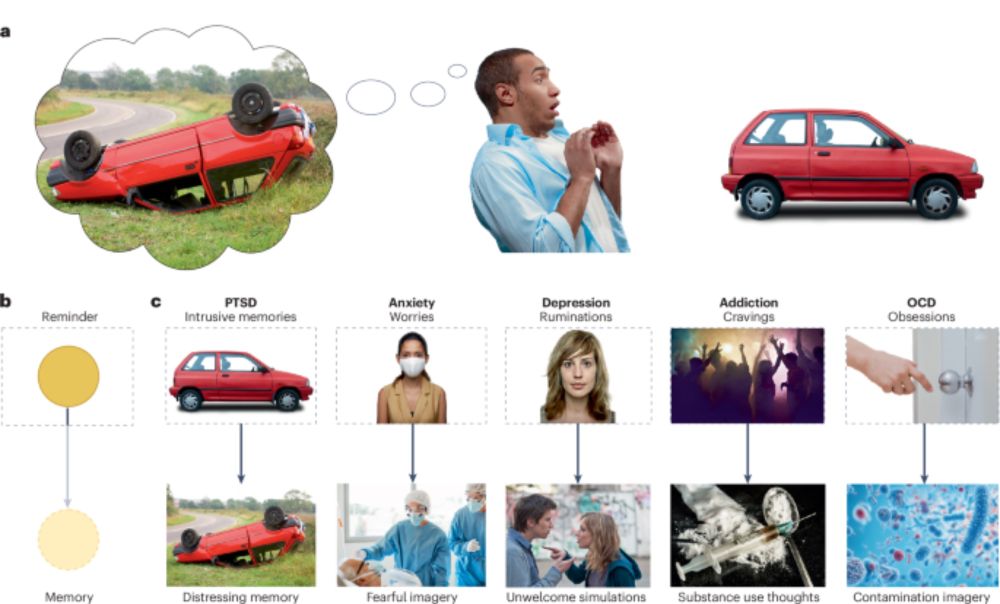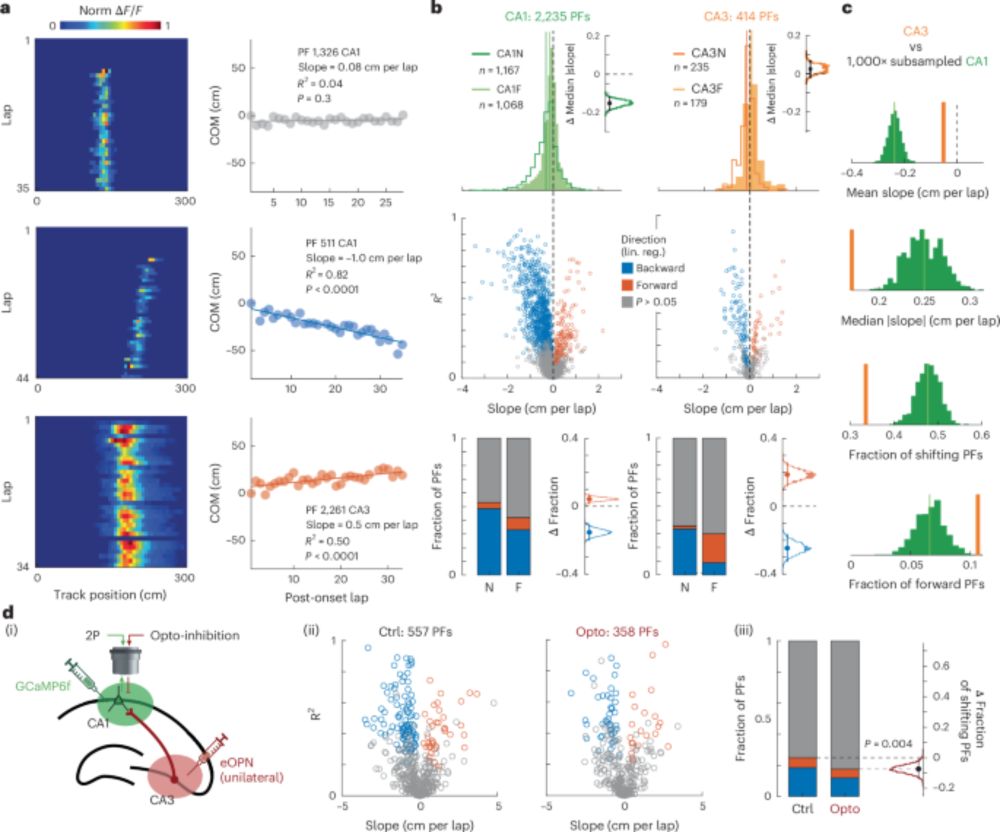Microsoft Research NYC is hiring a researcher in the space of AI and society!
29.01.2026 23:27 — 👍 63 🔁 37 💬 1 📌 2
Models of Language and Communication - PSYC 51.17
Course materials for PSYC 51.17: Language Models from Scratch - Dartmouth College
Excited to be teaching a new undergraduate course on Models of Language and Conversation this term!
Check it out here: context-lab.com/llm-course/
I've added lots of fun interactive demos of chatbots and NLP techniques that let students dig into the approaches.
07.01.2026 13:10 — 👍 25 🔁 8 💬 0 📌 0
Some exciting opportunity for NeuroAI research at Johns Hopkins!
06.01.2026 19:06 — 👍 8 🔁 5 💬 0 📌 0
This paper had a pretty shocking headline result (40% of voxels!), so I dug into it, and I think it is wrong. Essentially: they compare two noisy measures and find that about 40% of voxels have different sign between the two. I think this is just noise!
05.01.2026 17:22 — 👍 231 🔁 98 💬 8 📌 9
I am very excited to announce that over the holidays, my first ever paper (w/ @samiyousif.bsky.social) was published in Cognitive Science! Here, we describe a new illusion of *number*: The Crowd Size Illusion!
onlinelibrary.wiley.com/doi/10.1111/...
05.01.2026 17:04 — 👍 36 🔁 12 💬 0 📌 1
What if we could tell you how well you’ll remember your next visit to your local coffee shop? ☕️
In our new Nature Human Behaviour paper, we show that the 𝗾𝘂𝗮𝗹𝗶𝘁𝘆 𝗼𝗳 𝗮 𝘀𝗽𝗮𝘁𝗶𝗮𝗹 𝗿𝗲𝗽𝗿𝗲𝘀𝗲𝗻𝘁𝗮𝘁𝗶𝗼𝗻 can be measured with neuroimaging – and 𝘁𝗵𝗮𝘁 𝘀𝗰𝗼𝗿𝗲 𝗽𝗿𝗲𝗱𝗶𝗰𝘁𝘀 𝗵𝗼𝘄 𝘄𝗲𝗹𝗹 𝗻𝗲𝘄 𝗲𝘅𝗽𝗲𝗿𝗶𝗲𝗻𝗰𝗲𝘀 𝘄𝗶𝗹𝗹 𝘀𝘁𝗶𝗰𝗸.
05.01.2026 18:43 — 👍 69 🔁 24 💬 3 📌 2

Replay in the human visual cortex during brief task pauses is linked to implicit learning of successor representations | PNAS
Humans can implicitly learn about multistep sequential relationships between events
in the environment from their statistical co-occurrence. Theore...
Delighted to share our work on replay and successor representations! We find replay during very short task pauses in human visual cortex that is linked to learning SRs & happens when learning is implicit. Study led by @lnnrtwttkhn.bsky.social
#compneuro #neuroskyence
www.pnas.org/doi/10.1073/...
22.08.2025 16:43 — 👍 136 🔁 50 💬 2 📌 3
New paper with @mujianing.bsky.social & @prestonlab.bsky.social! We propose a simple model for human memory of narratives: we uniformly sample incoming information at a constant rate. This explains behavioral data much better than variable-rate sampling triggered by event segmentation or surprisal.
01.08.2025 16:45 — 👍 51 🔁 18 💬 1 📌 3
The House committee for NSF/NASA/NOAA is meeting tomorrow (Tuesday) at noon ET. Now would be a good time to call anyone on this list & tell them to keep science funding at full 2025 levels. You can remind them that 75% of voters want tax-funded science and they're concerned about the impact of cuts.
14.07.2025 14:18 — 👍 36 🔁 24 💬 2 📌 0
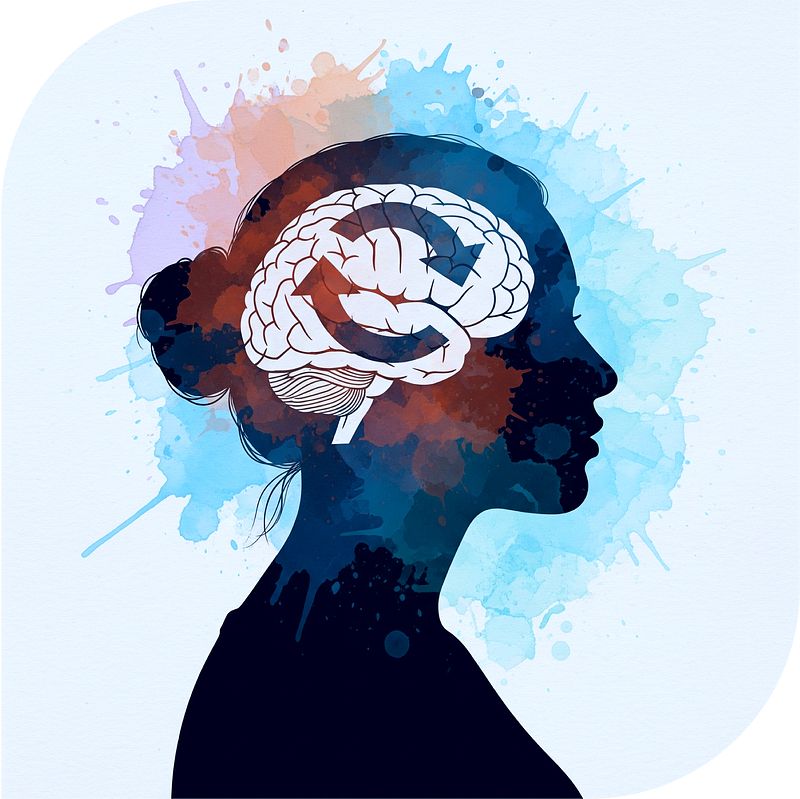
Sinclair Lab
The Learning & Behavior Change Lab at Rice University, directed by Dr. Sinclair
Excited to share my new lab website!
The Learning & Behavior Change Lab will launch at Rice in July 2026. I’ll be recruiting over the next year! @ricesocsci.bsky.social
www.sinclairlab-rice.com
14.07.2025 16:27 — 👍 80 🔁 20 💬 4 📌 1
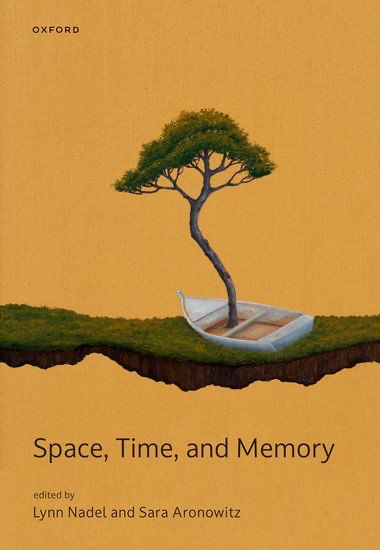
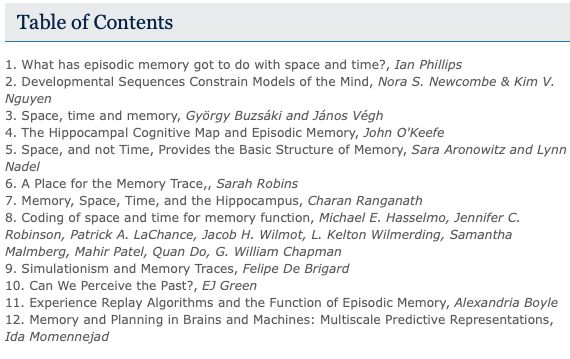
Pleased to say "Space, Time, and Memory", an academic book by Oxford University Press edited by the inimitable Lynn Nadel & Sara Aronowitz is now out.
I contributed a chapter, "Memory and Planning in Brains and Machines".
You can download the entire book for free:
library.oapen.org/bitstream/ha...
09.06.2025 20:48 — 👍 100 🔁 31 💬 7 📌 0
I just signed the Bethesda Declaration and urge you to do the same today, so that we all stand with NIH researchers as Battacharya appears before the Senate Appropriations Committee tomorrow.
09.06.2025 15:00 — 👍 49 🔁 22 💬 0 📌 0
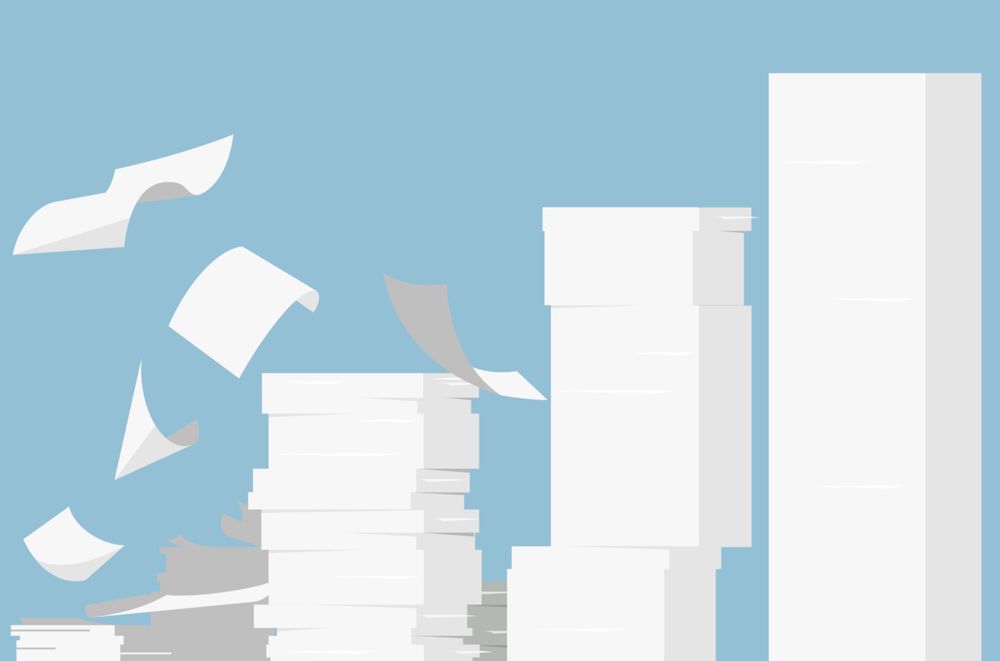
‘A big win’: Dubious statistical results are becoming less common in psychology
Fewer papers are reporting findings on the border of statistical significance, a potential marker of dodgy research practices
Thrilled to see a news piece by @science.org on my recent paper. By analyzing p-values across >240k papers, the study suggests that the rate of statistically questionable findings in psychology has declined since the replication crisis began
www.science.org/content/arti...
06.06.2025 19:19 — 👍 122 🔁 35 💬 3 📌 3

🧠🤖 Computational Neuroscience summer school IMBIZO in Cape Town is open for applications again!
💻🧬 3 weeks of intense coursework & projects with support from expert tutors and faculty
📈Apply until July 1st!
🔗https://imbizo.africa/
08.05.2025 08:19 — 👍 35 🔁 29 💬 1 📌 4
Congratulations, Q! Thoroughly deserved!
08.05.2025 13:57 — 👍 2 🔁 0 💬 1 📌 0
I’m thrilled to announce that I will start as a presidential assistant professor in Neuroscience at the City U of Hong Kong in Jan 2026!
I have RA, PhD, and postdoc positions available! Come work with me on neural network models + experiments on human memory!
RT appreciated!
(1/5)
08.05.2025 01:16 — 👍 130 🔁 39 💬 14 📌 4
Yes, that would be my default setting. But as I used the AI-agent over time it could become graded. I purchased your book based on an ad that I saw on your website, and I really enjoyed the book. So perhaps I would instruct my AI-agent to relay certain ad information but not others?
05.05.2025 16:18 — 👍 2 🔁 0 💬 0 📌 0
Presumably the AI-agent would still be able to view the ads and report back to their user if they came across something advertised which would be interesting/useful for their user.
I guess you are considering the case where the user explicitly tells the AI not to inform them of anything ad-related?
05.05.2025 15:54 — 👍 1 🔁 0 💬 1 📌 0

FINALLY.
Some gumption from the President of Harvard today:
14.04.2025 17:47 — 👍 106 🔁 15 💬 2 📌 0
All I can say is that the subjective effect size of the difference is very large and beyond what I would normally question. Once I start to question the validity of such judgments, I don't know how I could trust the majority of my waking self-report.
14.04.2025 14:44 — 👍 5 🔁 0 💬 1 📌 0
I've (on occasions) had normal waking imagery that is vivid. That waking imagery is just like the vivid imagery that I (much more often) experience near sleep. I agree that I'm always comparing two past states here, which involves some kind of memory function.
14.04.2025 14:44 — 👍 4 🔁 0 💬 1 📌 0
I am close to aphantasic (~2 out of 7 visual and auditory). However, there is an exception: I experience visual and auditory imagery when I am on the edge of sleep. So I know what imagery is, and I just don't experience it at other times. I don't know *how* I could be so wrong in subjective report.
14.04.2025 14:10 — 👍 6 🔁 0 💬 1 📌 0
The time zone for the deadline is "Anywhere-On-Earth".
08.04.2025 10:19 — 👍 2 🔁 0 💬 2 📌 0
cool!
07.04.2025 13:33 — 👍 16 🔁 3 💬 0 📌 0
Neuroscience. Memory, perception, action.
Assistant professor at University of Illinois Urbana-Champaign
https://the-steel-lab.github.io/
@dartmouth + @Vassar + @UniofOxford alum. Views are mine. RTs, Likes, and flws ≠ endorsement
Pure mathematics student at Cambridge. Loves analytic NT. | 🇬🇧🇵🇹 He/Him | 21 Bi/Demi | SFW
How brain neural nets do computations; we aim to understand differences in brain wiring, using lasers and neuro-AI.
Lab head, NIH. Prev: media policy for democracypolicy.network.
linktr.ee/markhisted
Pers. views
neuro posts: 🧠 /🧪
We aim to reveal how the brain does not merely solve separate problems, but integrates them into holistic and adaptive knowledge that enables complex real-world behaviour.
Bioethicist, etc: Johns Hopkins Berman Institute of Bioethics. Ethics & emerging biotech. Curator: @bermaninstitute.bsky.social. Baltimore enthusiast. He/Him.
Memory nerd. Assistant prof at York U, Glendon Campus. PI of the Tarder-Stoll Memory Lab.
Neuroscientist studying tastes, smells, and the body-brain axis • New York-based researcher with faculty appointments at Nathan Kline Institute | NYU School of Medicine | City College of New York
nki.rfmh.org/people/renee-hartig-ph-d/
PhD Candidate @ Johns Hopkins | Cognitive Neuroscience
MSc cognitive neuroscience at the Donders Institute | Interested in oscillations, memory, phase code
“What we observe is not nature in itself but nature exposed to our method of questioning.”
Associate Professor of Neurosurgery @upenn.edu | Neuroscientist | Human Neurophysiology, Neuromodulation & Neurotechnology | Memory & Perception | 🇦🇺 | https://www.fosterneurolab.com/
Associate Professor in EECS at MIT. Neural nets, generative models, representation learning, computer vision, robotics, cog sci, AI.
https://web.mit.edu/phillipi/
Interested in how & what the brain computes. Professor in Neuroscience & Statistics UC Berkeley
She/her. Neuroscience PhD student @UC Berkeley. Formerly @UT Austin, Haverford College. https://mujn1461.github.io/jianingmu/
PhD student @yale.edu
Interested in the neural basis of attention & memory 🧠
Building AI products that help us grow.
Neural Mechanisms of Stress Vulnerability & Resilience 🧠 | Incoming Assistant Professor @Haifa University 👨🏫 | Postdoctoral Fellow @Yale University 🎓
PhD Candidate, Psychological & Brain Sciences, Johns Hopkins University
concepts | language | plasticity | development | neuroscience
https://m-hauptman.github.io/
Interested in understanding the neural mechanisms underlying music cognition via neuroimaging and computational modeling
Neuroscience PhD from Princeton
Neuroscience Postdoc at MIT
https://scholar.google.co.uk/citations?user=RjmK2NgAAAAJ&hl=en







